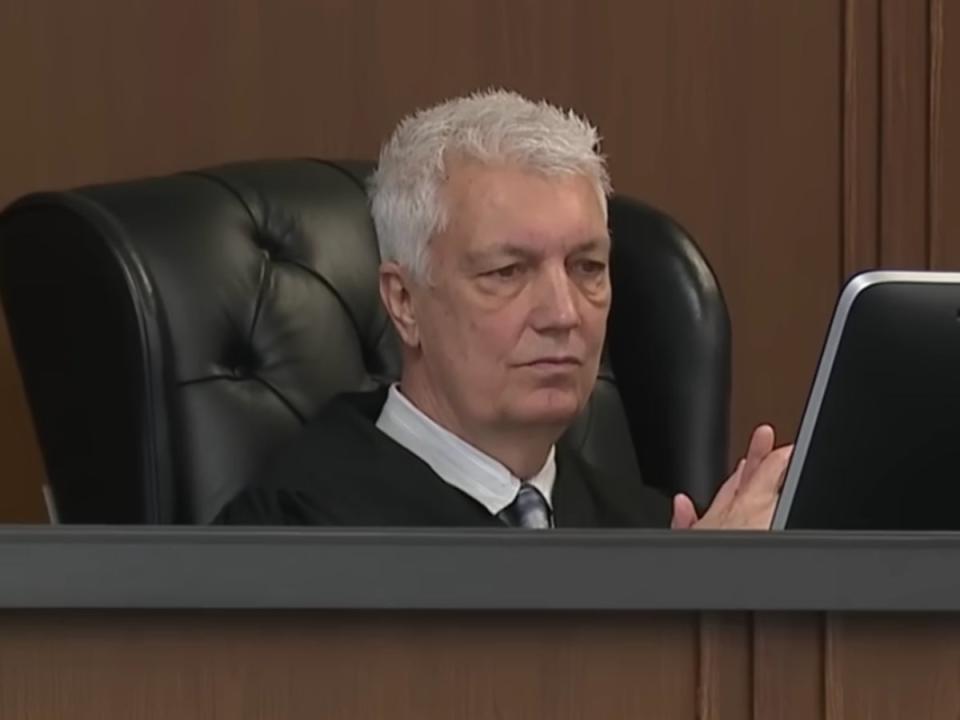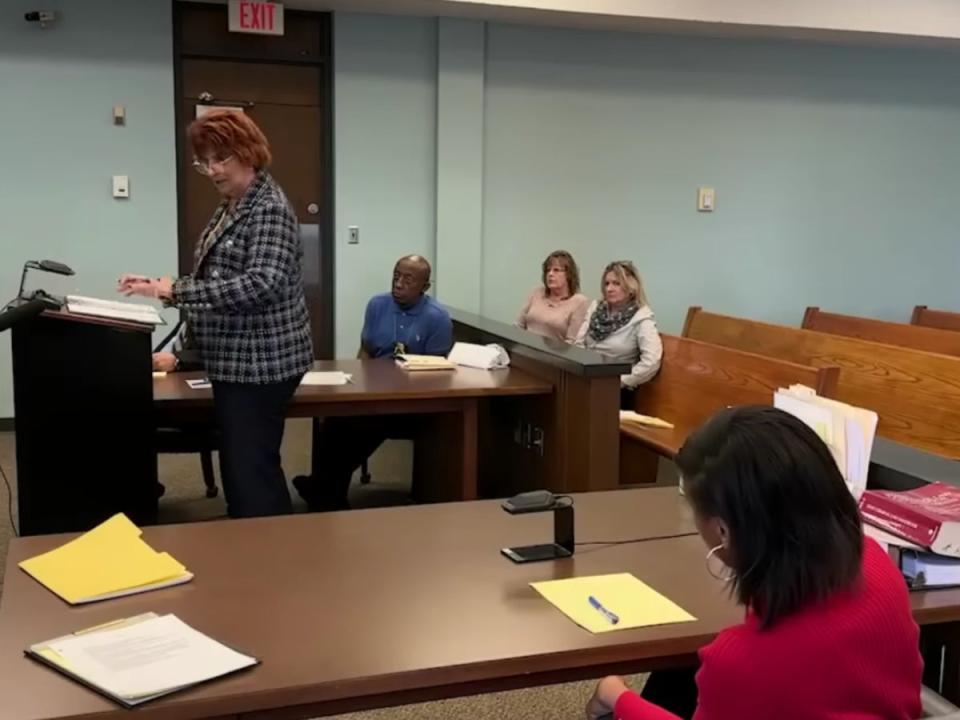Brittany Watts miscarried a nonviable pregnancy into her toilet. Now she’s facing a felony charge

By the time Brittany Watts miscarried in the bathroom of her home in Warren, Ohio, she had visited and left the hospital twice without receiving treatment. After waiting for eight hours at Mercy Health-St Joseph’s Hospital on 20 September, the 33-year-old left for the second time, inadvertently setting in motion a national debate over the felony charges that were brought against her two days later when she returned to the facility no longer pregnant.
When Ms Watts first consulted healthcare providers about her vaginal bleeding, she was told that her water had broken prematurely and the fetus she was carrying was unviable. Still, doctors had to grapple with the complex legalities of how to proceed with her 22-week pregnancy in a state with strict abortion laws.
The situation unravelled on 22 September, when Ms Watts returned to the hospital and told healthcare providers that she had miscarried into a toilet and then used a plunger to flush. Upon her return to Mercy Health, a nurse alerted police to the end of her pregnancy. Investigators searched Ms Watts’ home and found the 22-week-old foetus wedged in the toilet’s pipes.
Ms Watts was subsequently charged with felony abuse of a corpse, which carries up to a year in jail and a $2,500 fine, in a case that has prompted uproar over the treatment of pregnant women post Roe v Wade. Ms Watt’s attorney, Tracy Timko, told The Independent over email that the criminal charges brought against her client are “tragic and unjust”.
“The grief of her loss, the fear and frustration of her arrest and prosecution and the rollercoaster of emotions resulting from the public spotlight on the most intimate details of what should have been a private affair are challenges Ms Watts continues to face,” Ms Timko said. “Ms Watts prays that her story is an impetus to change so no other woman faces the horror of persecution and public scrutiny after such trauma.”

During a court appearance in early November, a medical examiner testified that the foetus died in utero before passing through the birth canal, local news station WKBN27 first reported. Despite further testimony stating that the foetus showed no signs of injury, Judge Terry Ivanchak ruled that the case should go to a grand jury.
“There are better scholars than I am to determine the exact legal status of this fetus, corpse, body, birthing tissue, whatever it is,” Mr Ivanchak said. “Matter of fact, I’m assuming that’s what ... Issue 1’s all about at what point something becomes viable.”
As the early stages of Ms Watts’s criminal case unfolded, Ohioans voted in favour of Issue 1, a measure to enshrine abortion protections into the state constitution. But records show that the issue at the centre of Ms Watts’ case was not whether her pregnancy was viable, as she was repeatedly told that the foetus would not survive.
Ms Timko argued in court that her client was being “demonised” for undergoing a miscarriage.
At one point, a physician advised Ms Watts that she should have her labour induced, a procedure that amounted to an abortion and would cause her to deliver the fetus but also put her at “significant risk” of death, according to those records obtained by the Associated Press.
Ms Timko said that her client left the hospital after providers took several hours to give her proper treatment. At the time of her last visit, Ms Watts had already missed Ohio’s then-21-weeks, six days of pregnancy window to access a legal abortion.
“It was the fear of, is this going to constitute an abortion and are we able to do that,” Ms Timko told the court.

When the nurse called authorities on 22 September, she claimed Ms Watts had stated that “the baby’s in her backyard in a bucket.” The toilet was seized by police and torn apart to retrieve evidence. An investigator at the scene testified in court that he felt “what appeared to be a small foot with toes” inside the toilet.
Ms Timko said her client described the pregnancy as unintended but not unwanted, and that she likely didn’t want to fish parts of a dead fetus from the bucket of blood, tissue and faeces that she’d scooped from her overflowing toilet after miscarrying.
Prosecutors have insisted on casting doubt on testimony by witnesses and records showing that the foetus was unviable. Warren Assistant Prosecutor Lewis Guarnieri accused Ms Watts of “putting the baby into a toilet” and “going on with her day”.
Ms Timko previously stated that Ms Watts was anxious and traumatised and was trying to prevent her mother from seeing the bucket and what was inside.
After the Ohio Physicians for Reproductive Rights coalition issued a public letter calling for prosecutors to drop the charges against Ms Watts last week, Trumbull County Prosecutor Dennis Watkins said that he was “bound by law” to present the case to a grand jury.

“This office, as always, will present every case with fairness,” Mr Watkins said in a statement. “Our responsibility carries with it specific obligations to see that the accused is accorded justice and his or her presumption of innocence and that guilt is decided upon the basis of sufficient evidence.”
Ms Timko maintained that there is no law in Ohio requiring the state to charge a mother suffering a miscarriage to bury or cremate those remains.
“Women miscarry into toilets every day,” she told The Independent in a statement. “In fact, the Ohio Legislature has created broad immunity to women for acts or omissions during pregnancy and has admonished that women should ‘in no case’ be criminalized for the circumstances or outcomes of their pregnancies.”
Ohio Physicians for Reproductive Rights’ Executive Director Laura Beene said the group fears the case will deter other women from seeking medical care in the aftermath of a miscarriage. Ms Beene addressed her letter to Warren Mayor Dough Franklin and others elected officials.
The case has garnered support from reproductive rights non-profits and prominent civil rights figures in recent weeks, and more than $146,000 has been donated to a GoFundMe page for Ms Watts’ legal fees.
Once it’s presented to a grand jury, they will decide whether Ms Watts is indicted.
“We will continue to fight and I am confident that justice will prevail,” Ms Timko said. “Ms Watts is extremely grateful and empowered by the outpouring of support and for the countless messages she has received from around the world from women who have shared similar experiences.”

